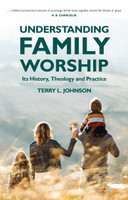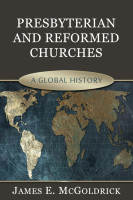
Presbyterianism: Its History, Doctrine, Government, and Worship (Miller)
- Affordable shipping (free $100+)
- 100,000+ customers served
- "Wonderful books, great prices, awesome customer service." – Ivan, IL
About
Samuel Miller, the first professor of Ecclesiastical History and Church Government at Princeton Theological Seminary and a prolific author, published this introduction and defense of Presbyterianism in 1835. Originally titled Presbyterianism: The Truly Primitive and Apostolical Constitution of the Church of Christ, Miller covers the basics of Presbyterian belief and practice, grounding his material in the Scriptures primarily and church history secondarily. Dr. Harrison Perkins (PhD, Queen’s University Belfast) has annotated Miller’s work and tracked down his sources, and the Rev. Mr. Allen Stanton, pastor of Pinehaven Presbyterian Church in Clinton, Mississippi, has supplied a historical introduction of Miller and this book. With these additions to Miller’s rich substance, this work is a wonderful primer on the foundations of our tradition in all of its biblical and historical richness.
Table of Contents:
1. Introductory Remarks
2. The History of Presbyterianism
3. The Doctrine of the Presbyterian Church
4. The Government of the Presbyterian Church
5. The Worship of the Presbyterian Church
6. Conclusion
Endorsements
“As a stalwart proponent of Presbyterianism as well as of theological education, Samuel Miller (1769-1850) influenced generations of Presbyterian pastors and elders in the nineteenth century with his writings on Presbyterianism, the nature and duties of ruling elders, and this work on the nature and character of church polity and doctrine. After expositing a biblical case for Presbyterianism, here one may find a helpful compendium of apostolic, medieval and reformation sources that articulated key principles of Presbyterianism. Whether it is the polity and worship of the Church or matters of faith or faithfulness for the Christian, Miller made a classic point worthy of acceptance: ‘Here, as in everything else, Scripture is the only safe guide.’”
— Todd Rester, Ph.D., Associate Professor of Church History, Westminster Theological Seminary, Philadelphia, PA
“Samuel Miller’s Presbyterianism was as prized in the nineteenth century as it was neglected in the twentieth. Now, thanks to Log College Press, this Reformed classic has been lifted from obscurity and made available to a new generation of readers. In Presbyterianism, Miller offers a brief and accessible case for the doctrines, worship, and government of the Presbyterian church. Thanks to this newly annotated edition, prefaced by a helpful introduction to Miller’s life and to the context and contents of Presbyterianism, readers will be able to appreciate the deep learning that Miller invested in this little manual. Whether historical Presbyterian belief and practice is familiar or foreign to you, Presbyterianism will be a sure guide to the biblical treasures preserved in this tradition.”
— Guy Prentiss Waters, Ph.D., James M. Baird, Jr. Professor of New Testament, Reformed Theological Seminary, Jackson, MS
“Astute historian and pastorally minded educator-author, Samuel Miller’s principled defense of Presbyterian ecclesiology became a benchmark statement for nineteenth century American Presbyterianism. Modest in size yet substantive in treatment, Miller’s confessional churchmanship and love for the bride of Christ prompted this fine study examining the biblical basis for the Church’s ministry and organizational practice. More than a period piece of denominational polity, Miller’s volume will stimulate contemporary readers to thoughtful biblical engagement on the identity and calling of the Church in the twenty-first century.”
— James M. Garretson
Author
Samuel Miller (1769-1850) graduated from the University of Pennsylvania in 1789 and studied theology under Charles Nisbet. Ordained in 1793, he pastored Presbyterian churches in New York City until being appointed the second professor at Princeton Theological Seminary in 1813. He was a prolific author whose writings continue to edify the church of Christ today.





